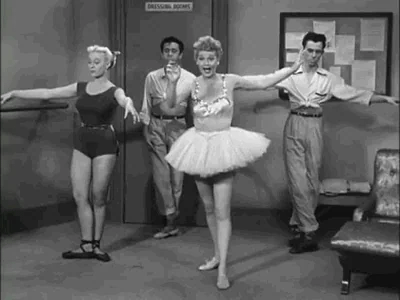How to get good at something FAST
Ready .... GO!
Happy Friday, Intentionalists!
You’ve probably heard that to master anything you need to spend many hours – maybe even years - learning and practising it.
Yet, some people seemly learn skills quickly while others struggle to grasp the subject even when they put in double the hours. Those who learn faster may not necessarily be geniuses or naturally talented - they may simply be applying themselves to the learning process better.
Grab your journal and a pen, and let’s help make you a better learner.
JOURNAL PROMPTS
1. Decide on the skill you wish to improve or master
For example, dancing, learning a language, digital content creation etc
2. Give yourself three strong reasons for developing that skill
For instance, will it help you make more money? Feel more accomplished? Will it expand your social life? Or will it just be a lot of fun to master it? (If you don’t have strong enough reasons for learning a skill, you are less likely to put in the focus and effort required to master it).
3. Write out a paragraph describing how it will feel once you’ve mastered the skill
Then go over this description in your mind each time you are about to practise the skill. (This should take you no more than 60 seconds, but it can make a world of difference to your ability to learn quickly)
4. Break down the skill you want to learn into specific components
For instance, if you want to become a better dancer, make a list of the components of what makes a skilled dancer in your style of dance. For example, it might be the ability to perform fast turns or graceful arabesques. Then take those components and break them down into even smaller steps to master. For example, a nice arabesque requires strength and flexibility of the feet, back and core so work on each of those first, then the technique for an arabesque, before combining them all into one beautifully executed move.
5. Get feedback and track your progress
You might like to get feedback from a teacher or a coach. You could film or record yourself performing your new skill. To track your progress, have a specific journal dedicated to the skill you wish to learn. Write down a few sentences about what you want to achieve before a class or a practice session, and then afterwards write in your journal about what went well and what you’d like to improve on in your next session.
6. Teach your new skill - or explain it - to someone else
This reinforces the skill in your brain while also revealing gaps in your knowledge.
Employing the above learning techniques won’t necessarily take more time than you are already spending trying to master a skill – but they will certainly increase how quickly you improve.
Most importantly, have fun learning your new skill! Fun is a great motivator and releases feel-good hormones from your brain that will accelerate the learning process.
♡ Spread the good vibes ♡
If you think a friend would enjoy today’s newsletter, invite them to subscribe 💌
FEEL GOOD AFFIRMATION
I love the feeling of accomplishment and who I am becoming by learning _____
I can do anything I make up my mind to master
(Write or say slowly 10 times)
KELLY’S GIGGLE GIVER
Sometimes a word can amuse you, not for the meaning, but rather for how it sounds and feels in your mouth when you say it. Here are six favourites that never fail to make me chuckle:
Doodlesack | bagpipes (German dudelsack, from dudel bagpipe + sack bag)
Bumbershoot | Umbrella (bumber- (alteration of umbr- in umbrella) + -shoot (alteration of -chute in parachute)
Fartlek | This is an activity runners do when they change between sprinting and jogging - (Swedish, from fart speed, pace + lek play, game, from Old Norse leikr)
Nudnik | a person who is a bore or nuisance
Noodge | to nag or pester
Tuft | generally refers to a small cluster of soft, flexible parts, such as hair, feathers, grass, or threads, that grow or are held closely together at the base and spread out at the top. It can also describe something shaped or arranged in such a manner. In furniture, a tuft refers to a method of stitching fabric to create a pattern of depressions
I can’t quite figure out why tuft makes me laugh. But it does. Every time.
If you have a word that amuses you, write them in the comments!
Be an intentionalist.
Belinda & Kelly XX
PS - Feel free to click the ♡ button on this post so more people can discover it on Substack and please be sure to tell us what you think in the comments!




